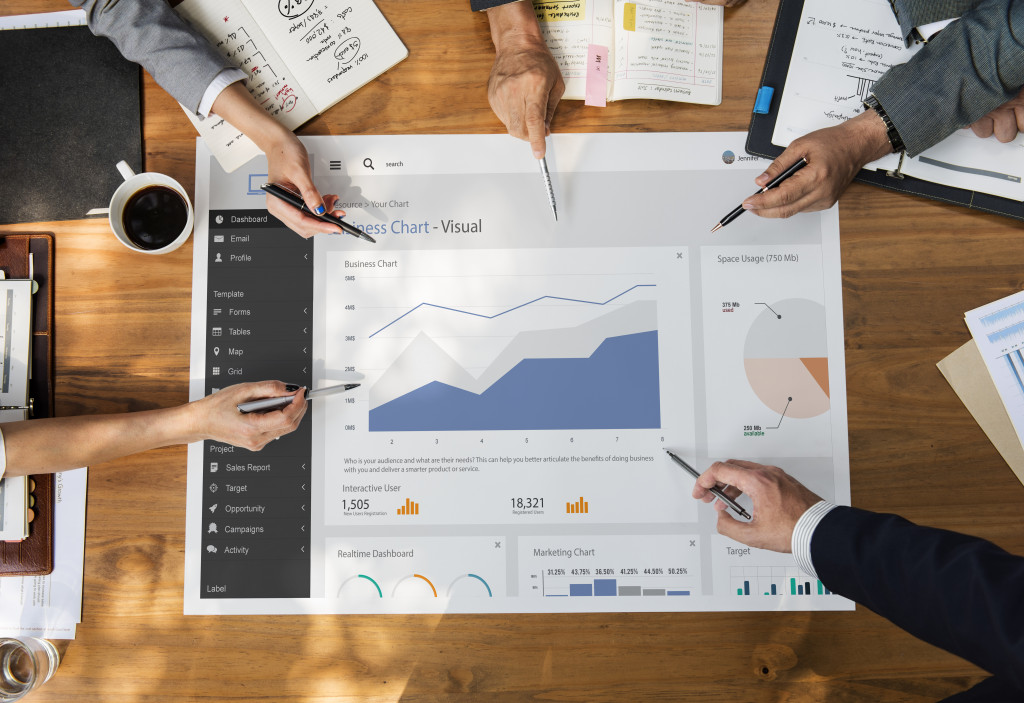When we talk about data in a business setting, we often focus on sensitive, confidential company data. Sales reports are used for quarterly projections, research and development details are concealed for competitive advantage, and customer data are stored and used only according to privacy laws. We shield these data from unauthorized individuals through data protection loss programs and other cybersecurity measures. But there’s another way we can look at business data—as a valuable resource for marketing.
In the digital age, running a data-driven marketing campaign is an excellent way to future-proof your business. With the right information in hand, you can build repeatable, scalable marketing processes. You can then let your campaigns run on autopilot, only tweaking them by touching the creative side of marketing. That could be using brilliant ad copies for A/B testing or injecting the right keywords for website optimization.
To dig deeper, here are several ways data can impact or even revolutionize your marketing campaign:
Helps you gain better clarity about your target audience
Any information about customers allows you to gain a better understanding of your target audience. For instance, your customer relationship management or CRM platform’s monthly insights are a gold mine for data. Typically, CRM programs gather various types of customer data, including purchasing history. So, say you run a residential cleaning service company. Looking at your customers’ purchasing history can tell you how often a condo owner hires a service or which add-on services three-bedroom owners typically get. From there, you can make your social media ads or pay-per-click ads more laser-focused.
Allows you to discover the best channels for promotion
Data from CRM, Google Ads campaigns, and other sales and marketing platforms could reveal not only a target audience’s demographics and preferences. It could also show what channels they use to interact with your brand. That could help you and your marketing team to position your ads and content better.
For instance, you own an office refurbishing company. All this time, your target buyers are male, 40-something business owners who look for resources through authoritative websites. But looking at your CRM and Google Ads campaigns, you found out that those who initially contact or interact with your brand aren’t business owners but their executive assistants. These administrative professionals often use social media and mobile devices when searching for contractors for their renovation projects. Without looking at the current data, you would continue ignoring social media as a viable channel for promotion.
Offers you the ability to build stronger connections with prospects

You can’t solve problems you don’t know about. So, to forge stronger connections with potential customers, you have to know their pain points and motivations to buy a product or hire a solution. You can get that information by gathering the right data and interpreting them accordingly. It’s better if your team can collect real-time campaign data. That way, your team can quickly adjust a campaign or revise content to suit your prospects’ needs and expectations. By interacting with potential customers with the right message at the right time, you can get your relationship with them off to a great start.
Gives you a chance to nail personalization
Repeat purchases fuel businesses. That’s why engaging your existing customers is crucial. You want them to buy from you again and be loyal to your brand—and you can achieve it through personalization.
Just like how you discover your prospects’ pain points, you can use data to know your existing consumers better. Find out what their needs are amid a pandemic. See if their priorities have changed over the past few months. Did they visit their website recently but leave without checking out a cart?
With all those details, you can personalize your existing pay-per-click and social media campaigns. Another marketing strategy that benefits well from personalization is retargeting or remarketing. Once a customer purchases from your website, your retargeting campaign can reach out to them again with similar deals or related offerings. The same goes for your frequent website visitors. By knowing the pages or products they browsed on their previous visit, you can send personalized ads or promos to entice them back to your website and complete their purchase or check out another product.
With the changing customer expectations, behaviors, and needs, shifting to data-driven marketing is essential. Relevant consumer data is everywhere—you only have to start looking and treating it as a valuable resource. That’s especially true now that the global recession brought on by the pandemic forces every business to be more competent in reaching the right audience with the right message at the right time.

